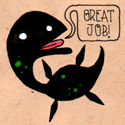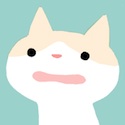|
I'm looking for anecdotes and advice about UX (User Experience) positions, preferably in either large companies, or in small companies well-known for UX design. How do you gain experience doing UX? Wait, let me rephrase that...How do you gain experience that people will take seriously doing UX? My manager(s) have been asking me to do UX design but my background is in print, layout, and illustration. I've tried two projects as a UX designer and only performed well in the layouts and visuals department. Apparently I'm missing an indescribable 'something' in the invisible aspects of UX design, probably pertaining to how people are handled and ideas are gathered/executed, so any clues as to what that is would really help. I don't have a UX mentor so that's also hurting me. I'll share what I know: -A lot of clients can't differentiate between UX research, UX design, UI (User Interface) design, graphic design, and illustration. All of these things get rolled into 'UX' for them for some reason. Many times I am asked to do UX, and it's illustration work. I'm of the understanding that illustration can be part of UX, but is not actually UX. -UX does the most good towards the beginning of a project's development cycle. -An interface can be tested out in sketch form. It doesn't have to be fully interactive, or even digital, to be testable. -Testing and feedback is like 90% of the job.
|
|
|
|

|
| # ? May 7, 2024 07:11 |
|
I'm also interested in any advice/info people could post. To add my own tiny bit of knowledge: working on side projects to put in a portfolio is a good way to demonstrate ux skills when applying for jobs. I've been working on it myself, and it's not hurting. As long as you can demonstrate what you can do and how you think. Also, networking is pretty important. I've spent a lot of time meeting people already in UX, joining organizations, making sure I'm on twitter and keeping up with news and best practices, etc. This has been the most useful for me in terms of hearing about positions and meeting people that work where I want to work. And it's also great for getting ideas for side projects, finding new tools and resources to use, and finding out about UX books, classes/seminars.
|
|
|
|
I'm a Lead UX Specialist at an agency that specializes in UCD. My main focus has been in b2b enterprise software for Fortune 100 companies, but I've worked on everything from small e-commerce operations to multi-national b2c retailers as well, I have about 15 years experience in web development. At my agency we have three different UX roles. The UX Specialist who is responsible for organizing user research, working with the technical architect to develop a natural user flow, as well as the person who is responsible for the majority of the documentation around user needs and the main advocate for the overall experience. The UX Designer is the person responsible for the visual design as well as working with the specialist to ensure that the details in the wireframes are captured in the design and that the allowances are obvious and natural to the intended audience. The UX Technologist is a hybrid front end developer and UX practitioner who creates interactive style guides based on the design of the UX Designer and is responsible for guiding much of the interaction design and collaborates with the specialist and the technical architect as to what will be meaningful to the users and feasible within the technical constraints of the system. While most of us at my company can do some of the other roles we're rarely specialized to the point where we have true jack-of-all trades. I can code JS and some Objective C and I'm very well versed in discussing system architecture and technical constraints with developers and I can do some interaction design for mobile and responsive web but I'm not nearly as good of a designer as some of the guys in the designer role and I'm not nearly as fast as some of the technologists when it comes to debugging my own code. If I was looking to get into the industry and wanted to focus more on user research rather than design or front end implementation, you need to show how you can solve problems. The main thing I look for when hiring is to hear how a UX practitioner identified a user need, validated it, designed a solution, got buy in from the product manager, and then measured the resulting impact of the change. I like to see initial personas, then refined personas, wireframes, what changes happened in testing, what impact testing had on the visual design, how a product was prototyped, what testing was done during that phase, and what lessons were learned post launch. This can be done with a large b2b platform, or it could be done with a local ecom site looking to increase traffic to one category of products. When your manager asks you do "fix" or "ux" something, what is the really the problem that they have? Why are they looking for a solution to this problem above others? What is causing this problem? Do your users even want what the business wants them to want? Questions like these are all great initial questions to get started, then begin to focus in on how best to solve the problem. Our agency hires interns into the UX field and works with local colleges to identify emerging talent but most people who come to the field do so after spending several years either in product development or digital agency work. While there's a lot of raw talent out there, the main thing that a UX designer does is prove how why something needs to be one way or the other through research, not gut instinct, then communicate that research to people who usually aren't interested, and finally learn from further testing on the implemented changes. There's currently a large shortage of UX Designers in most of the major tech markets (SF, Austin, Denver, NYC, etc), I've found it to be a very rewarding and challenging career, if you have any questions I'll do my best to answer them.
|
|
|
|
That was all super helpful, thanks. Hope the OP doesn't mind if I ask a question: I was wondering if you had any more info about UX research, and what would be important to show in a resume/portfolio compared to a UX designer. I also wanted to know what differentiates a UX research career from other careers in UX. Would you say there's demand for researchers as well, or does that only really apply to designers?
|
|
|
|
Our agency doesn't employ pure researchers and I've never worked with someone who's job it was solely to perform user research, that said I have seen that job description popping up at larger corporations, and a few co-workers have worked on projects with Frog who does employ some pure researchers. If I was gunning for one of those jobs a background in HCI would be important but so would a background in statistics or polling. The main thing that we look for when talking to someone who's done user research is how they've presented their findings. It's easy to do a hand full of user surveys, but how were you able to convince a business leader or manager to act upon the data that was uncovered? How were you able to advocate for the user while aligning the user's need to the business' interest? So what do you put on a resume? For each position that's relevant talk about about a problem that you identified, what you did to validate that problem and how you measured success. If you've developed personas in the past talk about why you included various details about the persona and how they helped serve as the dowsing rod for the team. If you've built journey maps in the past on any projects how were you measuring user satisfaction at various points in the user's interaction with the company? Were you able to identify any touchpoints that needed more help that the immediate scope of your project could address? How did you handle that? Even talking about proposed research methods that did or didn't stick and what cases you think they could be helpful in (video diaries, paper prototyping, card sorting, etc). If you have samples or sections of reports or presentations where you've presented that data or proposed those studies that would all be good stuff to see in a resume or during an interview. The pure research jobs are interesting positions and showing up mostly in larger organizations. They typically require some sort of bachelor degree or higher, and if anything are harder to break into without some experience doing the work. I think the demand for researching is going to grow as more and more UX teams move in house. Adaptive Path was acquired by Capital One just to be their UX team. IBM has one of the largest UX teams in the world now, top agencies like Frog are also expanding their research teams. Most UX Designers come to the field by being a graphic designer first, and come to UX wanting to drive more of the decisions around the product. UX Researchers are going to made vs evolving up from developers and designers. If anything, I expect to see more UX researchers coming from fields like political science, and mathematic backgrounds.
|
|
|
|
Thanks a ton for that answer, that really helped me a lot. I am interviewing for a ux research position, and I've been seeing more advertised as well. I have a background in psychology, so you're right about ux researchers probably coming from more social science and/or math backgrounds. That said, I'm going to focus on studying more ux-specific research methods, and learn a lot more about design. I eventually want to do both research and design, but right now I want to leverage my past research experience since I have no formal design training.
|
|
|
|
I am a UX designer at a large tech company. I've worked in R&D and also in agency settings so I can offer my input. Background: I used to be a writer, print layout designer who made the switch into interaction design. I dabbled briefly with web design but it took me going to grad school to specialize to really break into the career. re: differences btw. UX research, UX design, UI (User Interface), I find this helpful to share with friends and those looking to break into the industry. Here's a great breakdown http://www.onwardsearch.com/wp-content/uploads/2014/06/ux-career-guide.pdf There's a difference between being the visual designer vs. the UI designer vs. the UX designer vs. UX researcher, etc. I find being able to identify your role, your strengths, and weaknesses, how you can present your work based on your project output is a big help to clients. Visuals and UI are mainly about the appearance/look/feel at a micro-level. UX designers are about the whole interaction environment from a macro-environmental level. They can deal with site architecture, process, etc. At my company, they use UX designer as an all-up but each designer can carve their niche as interaction vs. visual vs. IA. When it comes to positioning your UX work, people want to know about your process and how you focused on user-centered design. It's not about slapping together a bunch of comps, adding a caption, and letting that stand in your portfolio. Think of it like an employer who's interested in how you problem solve creatively with how you got to the WHO, WHAT, WHERE, HOW, and WHY. You have to tell/walk through that story in re: thought process, research, organizational needs, wireframes, etc. Here's a good article about how a designer critiques work. https://signalvnoise.com/posts/3024-questions-i-ask-when-reviewing-a-design Learn more about user-centered design practices. re: UX researchers People can break into it a few different ways but most I know majored in psychology, HCI, etc. I know folks who've earned PHDs and became UX researchers who published papers, etc. Some who've worked their way up from agencies, etc. Some who were psychology majors, anthropology, law, etc. They all had the ability to do stats, handle quantitative and qualitative data gathering methods. re: networking I def. recommend for you to check out IXDA.
|
|
|
|
Some really well thought-out stuff here, thanks so much. Please everyone who wants to ask questions, do ask in this thread, because I'm sure I can't think of everything that would be a good question! I'm curious about UX in relation to Agile development process. From what I know, it should be set up a sprint ahead of the development cycle. However, in a larger organization that doesn't have a fully-staffed or functional UX team, I've found there's a good chance that a UX designer will get pulled into a project at an odd moment in the Agile process. My experience was particularly painful (I was included on the team during very last sprint right before the holiday) so I'm interested in ways that experienced UX designers would deal with a similar situation. Or, examples of jobs done within Agile that worked well? Really interested in team techniques and ways to make software engineers and project managers work with each other for the good of the user, and ideally with me, too.
|
|
|
|
I'm currently taking the User Experience Design class at General Assembly in London. I'm taking the part time Saturday class which is 4 hours every sat for 12 weeks. They also do a full time intensive Mon-Fri 9-5 class that lasts 10 weeks. I'm finding it very interesting and useful. I was already a web designer and front end developer. I just find the concept of UX really interested and I'm hoping this will add something to my CV and portfolio and raise the day rates I can get for contract work. If anyone has any questions about the GA class I'd be happy to answer. I'm writing a blog about class every week, as well as the homework tasks and some other UX stuff as I learn it, but I'm not sure if posting it here would break a forum rule?
|
|
|
|
GreatJob posted:Some really well thought-out stuff here, thanks so much. Please everyone who wants to ask questions, do ask in this thread, because I'm sure I can't think of everything that would be a good question! Oh yes, there's been alot of discussion in how design fits into the agile development process. Design should have a stakehold at the very beginning and be involved and not at the last minute as "window dressing." I found this article -- written by head of product design of Facebook -- helpful in how dev/pm can work better with designers. How to Work with Designers: A Cheat Sheet for Engineers and PMs This could handy in how you could do agile design sprints. How To Conduct Your Own Google Ventures Design Sprint
|
|
|
|
Thank you! Looking at that, I'm definitely not a generalist...I'm also way more into immediate strategies and nuts n' bolts than any of the stuff attributed to higher-ranking designers in an organization. Any tips on getting people to stop calling design 'making it look pretty'? It's not so much the phrasing, just the idea that what I'm doing isn't as important as what an engineer does.
|
|
|
|
I live in Toronto, so YMMV, but I work in this field to some extent. My background is web design and development, with a lot of informal (i.e. use it in the course of my job and on a freelance basis, but have never actually had a job as a Graphic Designer) graphic design experience as well. My current role is largely composed of content management, contributing about 50% of the graphic and written content myself, the other half being submitted in completed form by various internal stakeholders. With this, I manage the development and execution of content for the internal and external digital channels for one of Canada's biggest retail companies. As someone who has been doing this for almost a decade, most of my knowledge is largely intuitive. However, with the increase in visibility of UX and related fields, I found that clients and stakeholders were understandably less and less inclined to take "because I know from experience that this is the best way to lay it out" as reasoning behind my decisions. In order to enrich the empirical side of my knowledge, I recently completed a certification in User Experience Design from NYU. I'm currently looking for a new job and I have found that in the marketing/digital communications/content management fields, the term UX is starting to pop up a LOT. I don't see a lot of companies yet advertising for pure UX roles, but they are really starting to look for those skills as part of a whole package in these particular fields. Just completing my certification, and being able to show, in interview presentations, the specific process behind my projects, has garnered a lot of interest. I am definitely a generalist in this field and I feel like at this point in time, that's what companies, at least in the corporate sense, are looking for. The pure UX roles I find are mostly being looked for by agencies or startups at this point - but of course it could be very different here than where you are. Just figured I'd offer you my two cents, which would actually be a nickel, since we got rid of our pennies.
|
|
|
|
I am a library science major (yeah I know), and I've been told frequently that UX is a great way to go. I've been really interested in getting out of libraries and into UX for a long time because I really like research and working with metadata and organizing information, but I have no idea of how to make that happen. I have heard of people who have transitioned from libraries to UX, but after going to several networking events and talking to people in the industry, I still haven't met anyone with a background anywhere near mine and my research into that hasn't really given me anything useful. Is there anyone here with a similar background who is willing to share how they got there? That would be so helpful.
|
|
|
|
One of the UX researchers I met at my last contract was an anthropologist prior to her current job. She actually hated computers but just couldn't deal with dig site dust. I do have a library science friend who is actually a librarian. Her Masters' courses were all about information architecture -- and information architecture was something that came up a lot with the designers I was near. If you're able to sort information by relevance to a user's needs, or run experiments to figure that kind of thing out, that's where the intersection between UX and library science lies. sheneedstherapy, don't suppose you have your portfolio on hand? Would love to take a look at it, since I'm redesigning mine too.
|
|
|
|

|
| # ? May 7, 2024 07:11 |
|
I am a Head of UX for an online company. I oversee UX operations for a conglomerate of around 80 brands, but our main project is a market leader in its sector in Germany. Let's generally say it's the digital classifieds business. I'll be more than happy to answer any questions. I’ll also brief you about UX in a corporate environment setting. A lot of info has so far been shared in the posts above, so apologies if the information below was already covered. Who are you? About me, because you have to be a bit of a primadonna to make it in this line of work: I'm 33 and have been doing UX for something like 10 years. I have a BA in Sociology and an MA in something unrelated (military science, don't ask). I started out in a tiny digital agency as a creative/copywriter, but I was really doing UX work without knowing it actually exists. After some time I replaced Word with Axure and things started taking off. That is not to say I didn't miss the mark a couple of times, having short stints in electronic entertainment and gas station maintenance, freelancing in the background. A couple of years ago I started doing UX Design for a large publishing company, the moved on to a software house, a software developer in another country and finally a UX management position back in my home country. It's almost a year now. I love it and don’t see myself moving anywhere, though my current position does have its inadequacies and problems. What UX roles does a modern corporation have? In a corporate environment, the basic roles in a UX department are: • UX Designer –UX designers come up with product ideas, design them, aid the development and implementation process and oversee performance. They’re involved deeply with the product department, who usually sign off on various UX proposals – the main point of contact is usually a product owner. On the other side, UX designers work with analysts or system architects who put the projects into actual tasks and schedules for the devs. UX designers in my environment come in three flavors: o UX Designer – works in a prototyping tool, creates process flows and high-level prototypes; aids in documentation creation. Usually has background in social sciences and qualitative research experience (ei. moderation). Spends a lot of time on the phone. o UI Designer – has experiences with visual software (Photoshop) and produces high-fidelity prototypes and final designs. Usually limited to small form design, as big design projects are contracted out to agencies. Might be expected to know basic CSS & HTML. Spends a lot of time loving around on a smartphone as is usually late for work. o Front-end designer – this person usually has both visual graphic design and coding experience. They’ll put together high fidelity prototypes in code or use a framework like bootstrap to allow the dev teams to hit the ground running, rather than recreating prototypes in code. • UX Researcher – some companies in our group have this position, others don’t. It’s a person who deals with qualitative and quantitative research, focusing on user-centric design issues. A UX Researcher might also be expected to analyze traffic, put together A/B tests and deliver presentations to stakeholders. Sometimes companies opt to have their own UX labs, so the UX Researcher could be busy with putting together in-house user testing, moderating and analyzing hours of video. If it’s contracted out, they’ll be expected to work closely with the agency and slave over scripts, screeners and other fun stuff. • Testing engineer – developers specializing in testing tool development. While many services can use out of the box solutions for A/B testing, larger companies need to create their own. My team runs our own A/B & heat mapping tool, so essentially we have a small dev team within the UX dept. These guys also put together A/B tests and deliver results. What does the Head of UX do? gently caress if I know. For the most part, it’s an uber-team leader type of role, with an added responsibility of laying down strategy for many design elements. I am in the third line of company management, somewhere below the VP’s and section managers, somewhere around team leaders. On an organigram, the UX department is a free agent, floating off to the side and falling directly under dev, marketing or product, but rather hanging between all of them. Usually when a new project rolls around, we meet up with other people running them and plan how things will be organized, then hand it off to the team. I also spend a lot of time on HR issues. How much money do UX people earn? I’m not gonna give particular numbers, since this depends very much on the country and city you’re in, however the current assumption is that a competent UX designer earns whatever a software developer at a similar experience level earns within that company. A newbie can expect to make around 40% of that during the year. There’s an oversupply of UI designers currently, as the job of a web designer is dying out and everybody’s switching to UX, so unless you can slice & code, expect around 30% less. UX Researchers’ incomes are a bit lower, usually similar to whatever marketing people earn. As with any job, short term contracts have fees that look loving amazing on paper, but it’s the stable, long-term contract where the money’s at. How do I get hired? A portfolio’s always a great place to start, and honestly, prototypes work just as well as finalized designs do. Since most people do not have prior UX experience, it’s crucial that you’re able to describe how a website actually works. It’s also great if you actually use the internet, and like creating poo poo. Finally, I always ask about the last book, blog or article on UX you’ve read was, and pretty much 80% of people fail at this point. If you’re able to answer these, but don’t have any prior experience, there’s a high chance you’ll get into a junior position, considering you also pass the personal/HR interview. UX – be a smart rear end and get paid.
|
|
|









